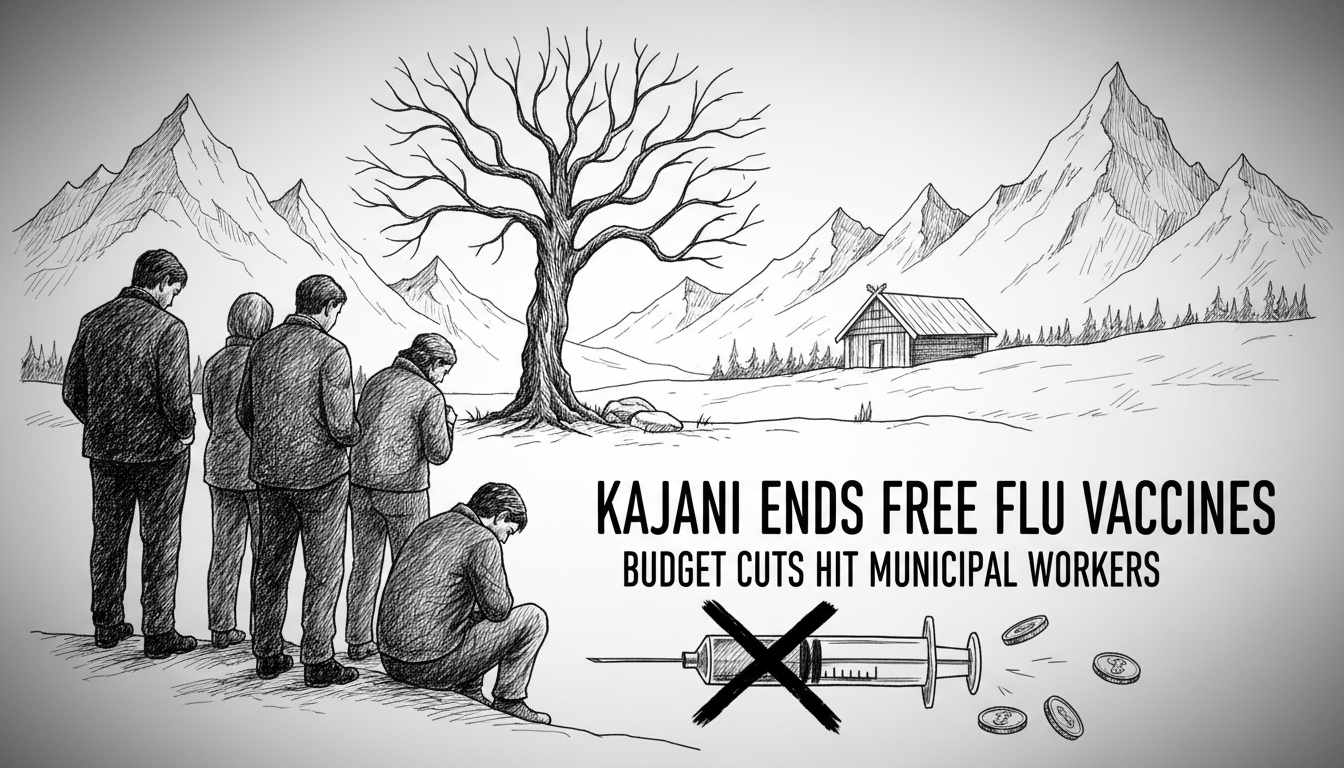Kajaani municipal employees must now pay for their own influenza vaccines after city officials eliminated the workplace benefit. The Eastern Finnish city previously provided seasonal flu shots through occupational healthcare services for three consecutive years. This policy reversal comes as municipal governments across Finland face increasing budget pressures.
City personnel director Jyrki Komulainen confirmed the decision in a statement to local media. He explained that occupational healthcare costs require containment measures to remain within budgetary limits. The influenza vaccine program represented one specific cost-cutting target for the current year. Komulainen emphasized that employers have no legal obligation to provide seasonal flu vaccinations under Finnish labor law.
High-risk individuals will continue receiving free influenza vaccines through Finland's public healthcare system. This distinction highlights the complex division between municipal and national healthcare responsibilities. The Kajaani municipal budget allocated 1.035 million euros for occupational health services in the coming year. The discontinued vaccine program would have cost approximately 26,000 euros.
This decision coincides with an unusually early influenza season spreading across Finland. Health authorities report particularly high activity in Northern Ostrobothnia region, with cases detected across all age groups. The European Centre for Disease Prevention and Control recommends prompt vaccination for vulnerable populations. Vaccine protection typically requires about two weeks to become effective after administration.
The timing raises questions about workplace health priorities during respiratory illness seasons. Finnish municipalities operate under strict financial constraints while maintaining essential services. Kajaani's approach demonstrates how local governments balance employee benefits against budgetary realities. Similar cost-benefit calculations likely occur in other Finnish municipalities facing comparable financial pressures.
This policy change reflects broader trends in Finnish public sector cost management. Municipalities increasingly scrutinize non-mandatory benefits as they navigate economic challenges. The decision may influence similar evaluations elsewhere in Finland's decentralized governance system. Employee unions typically monitor such benefit reductions closely during collective bargaining processes.
Finnish occupational healthcare operates within a unique framework combining employer responsibility and public health infrastructure. Municipal workers represent a substantial portion of Finland's public sector employment. Benefit adjustments for this group often signal wider shifts in public sector compensation strategies. The practical impact on employee vaccination rates remains uncertain without subsidized access.
Public health experts note that workplace vaccination programs traditionally achieve higher participation than individual initiatives. The elimination of this benefit could affect overall community immunity in the Kainuu region. Municipal decisions about preventive healthcare investments often generate discussions about long-term cost effectiveness. Finnish society generally values comprehensive preventive healthcare despite current budgetary constraints.

